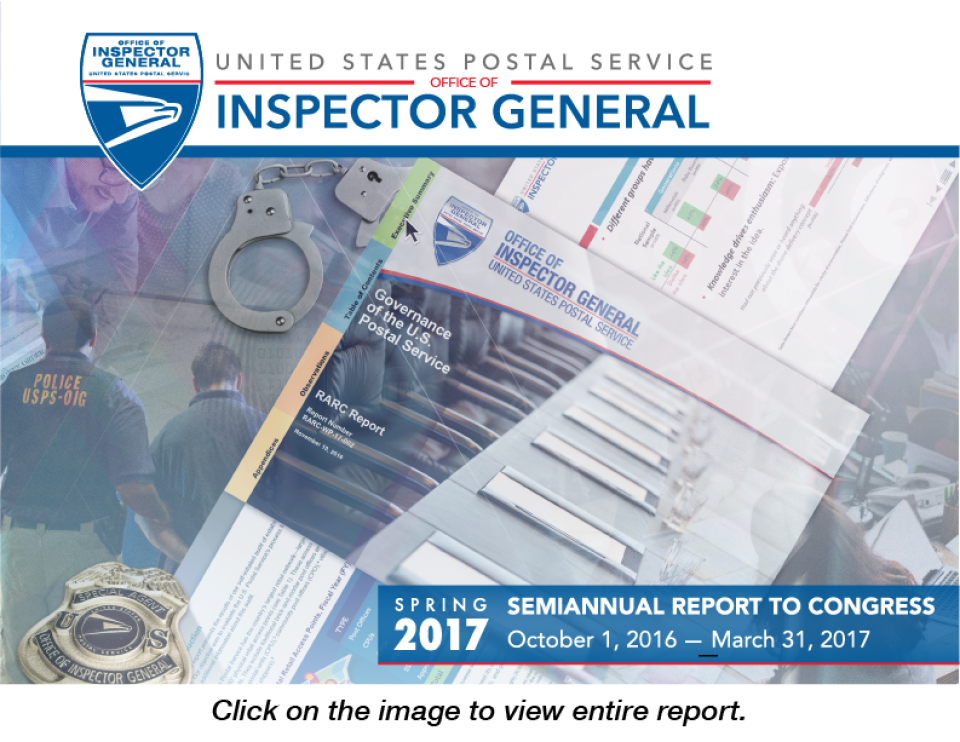Spring 2017 Semiannual Report to Congress
The Office of Inspector General is tasked with ensuring efficiency, accountability, and integrity in the U.S. Postal Service. We also have the distinct mission of helping to maintain confidence in the mail and postal system, as well as to improve the Postal Service's bottom line. We use audits and investigations to help protect the integrity of the Postal Service. Our Semiannual Report to Congress presents a snapshot of the work we did to fulfill our mission for the six-month period ending March 31, 2017. Our dynamic report format provides readers with easy access to facts and information, as well as succinct summaries of the work by area. Links are provided to the full reports featured in this report, as well as to the appendices.
A MESSAGE FROM THE ACTING INSPECTOR GENERAL
The first six months of our fiscal year has put us on course for a year like no other. In December, the U.S. Postal Service Board of Governors lost its last remaining presidentially-appointed governor when his holdover term expired. The Board, which operates much like a corporate board of directors, is now without any independent governors for the first time since the Postal Reorganization Act of 1970 created the governing body. By law, we report to the Governors and to Congress.
A paper we issued in this reporting period, The Governance of the U.S. Postal Service, noted the ramifications of having no independent governors. The Board — which is made up of the postmaster general, deputy postmaster general, and nine independent governors appointed by the president and approved by the Senate — can delegate many tasks to the postmaster general, but, by law, only the presidentially appointed governors can conduct certain actions. These include authorizing rate and fee changes for postal products, and requesting the Postal Regulatory Commission add, remove, or reclassify products.
As our work presented here indicates, we continue to be driven by the mission of ensuring efficiency, accountability, and integrity in the Postal Service — no matter what is happening around us. Our follow-up work on compound pharmaceuticals is a good example of how our work is providing strong value to stakeholders. In 2016 alone, the Postal Service paid more than $173 million in workers’ compensation costs for these kinds of prescriptions, a dramatic increase from the $9 million it paid in 2013. Working with the Postal Service, we together drove programmatic changes at the Department of Labor in October 2016, which resulted in over 86 percent billing decreases for compound drugs. These changes also will protect the entire government from billions of dollars in future fraud.
In this Semiannual Report to Congress for the period ending March 31, 2017, we issued 84 audit reports, management advisories, PARIS risk models and white papers, and the Postal Service accepted 84 percent of our recommendations. We completed 1,394 investigations that led to 345 arrests and nearly $20 million in fines, restitutions, and recoveries, $3 million of which was turned over to the Postal Service.
I look forward to working with all stakeholders as we address the challenges ahead. With the support of postal management and Congress, the OIG will continue to play a key role in maintaining the integrity and accountability of America’s Postal Service, its revenue and assets, and its employees.

